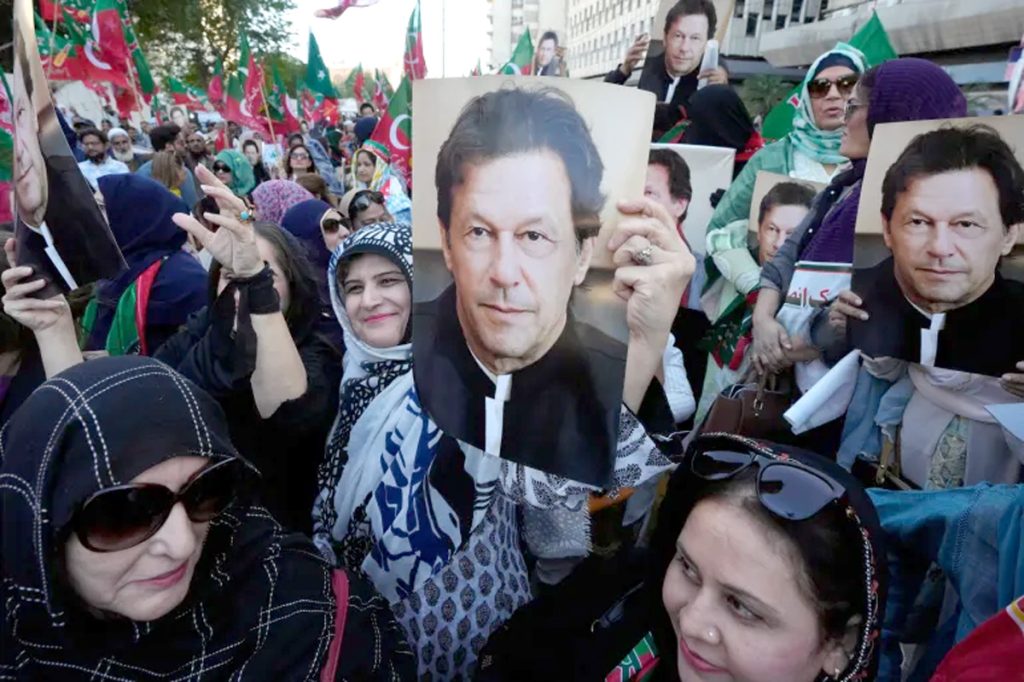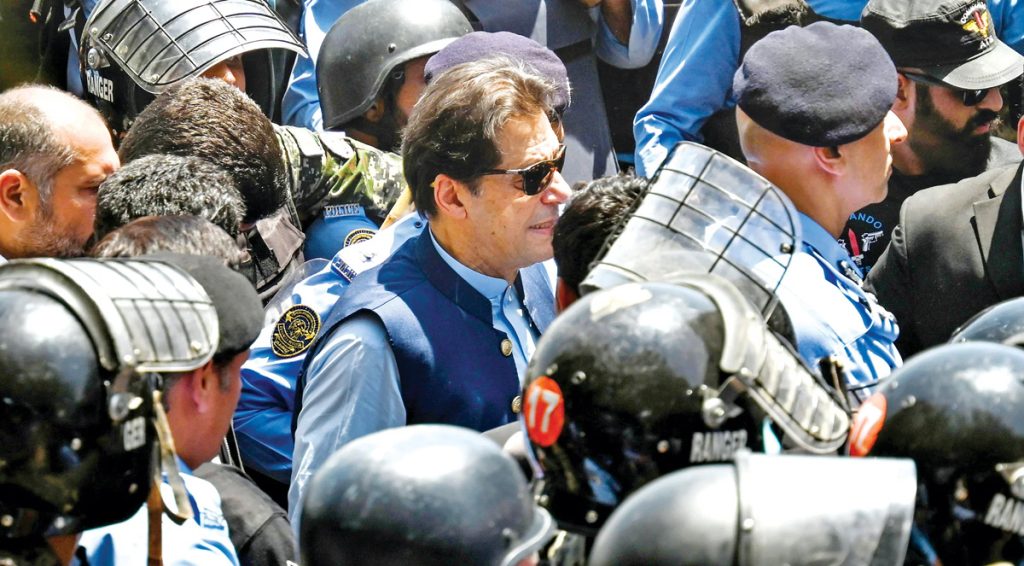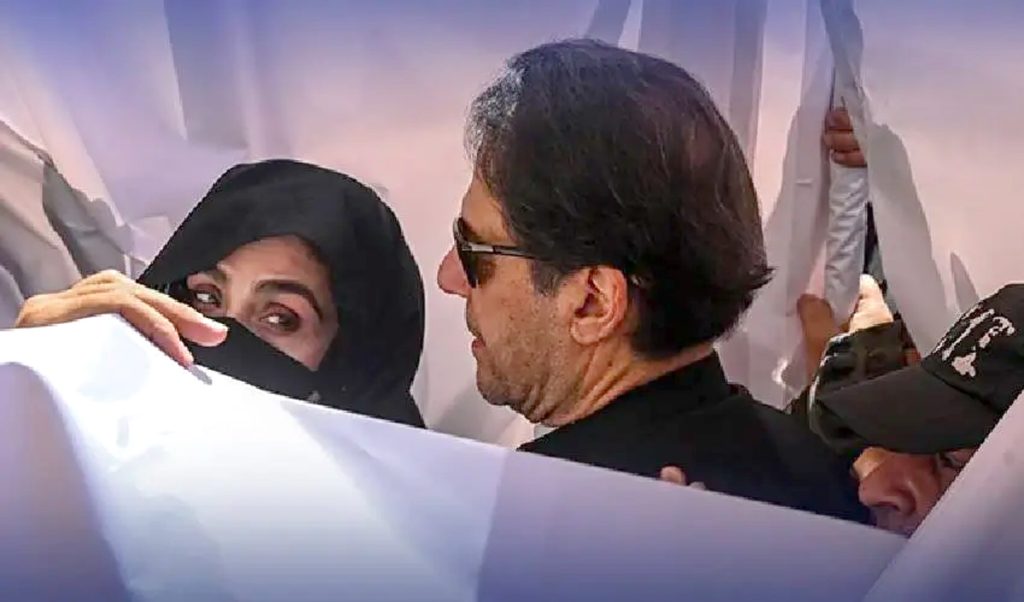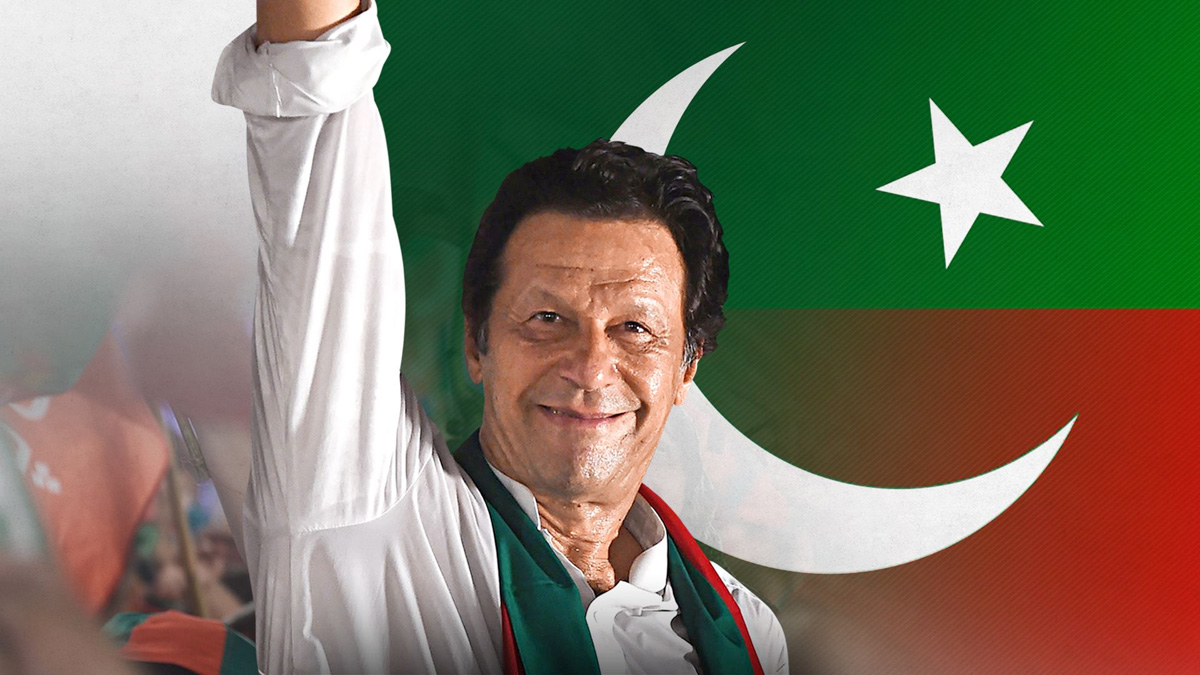A United Nations human rights working group says former Pakistani Prime Minister Imran Khan has been arbitrarily imprisoned in violation of international law.
In an opinion issued on 1st July, the Geneva-based UN Working Group on Arbitrary Detention said the “appropriate remedy would be to release Mr. Khan immediately and accord him an enforceable right to compensation and other reparations, in accordance with international law”.
“[The] working group concludes that his detention had no legal basis and appears to have been intended to disqualify him from running for political office. Thus, from the outset, that prosecution was not grounded in law and was reportedly instrumentalised for a political purpose,” the UN working group said in the opinion, which was dated March 25 but only made public on July 1.
The group, made up of five independent experts, whose opinions are not binding but carry reputational weight, said Khan’s legal woes were part of a “much larger campaign of repression” against him and his Pakistan Tehree-e-Insaf (PTI) party.

Listing many legal inconsistencies and irregularities in the various court proceedings of the PTI chief, the body said it was rendering its opinion on whether Imran’s detention was arbitrary and that he should be released immediately.
The working group has the mandate to investigate cases of deprivation of liberty “imposed arbitrarily or inconsistently with the international standards set forth in the Universal Declaration of Human Rights, or the international legal instruments accepted by the states concerned”.
Listing many legal inconsistencies and irregularities in the various court proceedings against the PTI chief, the body said it was rendering its opinion on whether Mr Khan’s detention was arbitrary.
It said that in the lead up to the 2024 general elections, members of Khan’s party were arrested and tortured and their rallies were disrupted. It also alleged “widespread fraud on election day, stealing dozens of parliamentary seats”.
The Pakistani government has not commented on the opinion yet. The country’s election commission denies the February elections were rigged.

The report, dated June 18, noted that the government of Pakistan had been transmitted a communication on Mr Khan’s case in Nov 2023, but had not received a response, nor a request to extend the time limit to reply.
Now, the working group has requested the government to take the steps necessary to “remedy the situation of Mr Khan without delay and bring it into conformity with the relevant international norms”.
The working group noted how Mr Khan was convicted in the first Toshakhana case — through a summary judgement delivered in absentia — and his subsequent arrest by law enforcement personnel, who broke into his residence and assaulted him and his staff, was concerning and compounded the illegality.
Since his removal as prime minister in April 2022, Khan, 71, has been entangled in more than 200 legal cases and imprisoned since August last year. He calls the cases politically motivated and orchestrated by his political enemies to keep him from power.
Last week, an Islamabad court rejected a plea to suspend the jail terms of Khan and his wife Bushra Bibi, whose marriage was ruled illegal under Islamic law.

In April this year, a Pakistani high court suspended Khan and his wife’s 14-year prison sentences in a corruption case. Khan also had another 10-year sentence for treason overturned this month.
But he remains in Adiala jail, south of the capital Islamabad, over the illegal marriage conviction.
Rana Sanaullah, an adviser to Prime Minister Shehbaz Sharif, last week said “the government will try to keep him locked up for as long as possible”, according to an international news agency.
Khan was ousted by a parliamentary no-confidence vote after falling out with the top generals who had once backed him.








